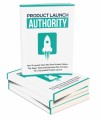Salespage Snapshot

Table of Contents
Introduction 6
Chapter 1: Understanding Why Attitude Impacts Emotions and
Behaviors 9
The Affective Component of Attitude 10
The Behavioral Component of Attitude 11
The Cognitive Component of Attitude 12
The Impact of Attitude 13
Chapter 2: Developing and Cultivating Positive Mental Attitude 16
The Role of Self-Talk in Shaping Attitudes 17
Mindfulness and Meditation for Attitude Improvement 19
Gratitude and Appreciation: The Key to a Positive Mental Attitude 21
Chapter 3: Overcoming Negative Thoughts and Beliefs 24
Identify and Write Your Thoughts Down 24
Being Mindful 25
Positive Self-Talk 26
Replace Negative Thoughts and Beliefs 28
Chapter 4: Fostering a Growth Mindset 32
Rework Your View of Failure 33
Know Your Limits 34
Understand Brain Plasticity 35
Reflection 36
Reward Your Actions, Not Your Traits 37
Use the Word “Yet” 38
Chapter 5: Practicing Mindfulness and Self-Care 41
What is Self-Care? 42
Why is Self-Care Important? 43
Mindfulness and Self-Care 44
What Mindfulness Does for Our Self-Care 47
Chapter 6: Maintaining Positive Mental Attitude in Daily Life 50
Follow Your Fear 51
Be Optimistic 53
Practice Gratitude Every Day 53
Being Kind to Others 55
Don’t Take Things Personally 57
Surround Yourself with Other Positive People 58
Conclusion 61
Sample Content Preview
Chapter 1: Understanding Why Attitude Impacts Emotions and Behaviors
Attitude is the collection of emotions and feelings towards a subject matter. If you walk into a meeting thinking that you can’t stand the people in the room and all you want to do is to go home, that would be walking into your meeting with a negative attitude.
What’s important to understand about attitudes is how they are contagious. People with positive attitudes have been known to light up a room whereas those with negative attitudes drag everyone down with them. This is because we rely on the people we are around much more than we think we do. The people around you will influence how you think and act, which can be both very good, or very negative.
Not only do your emotions make up your attitude, but your attitude contributes to your emotions and behaviors. If you have ever gotten into a cycle where your emotions and attitude feed off of each other, the impact that attitude has on how you feel is responsible.
Many people believe that it is primarily our attitudes that drive our behavior. However, just as we talked about the impact of attitude on emotions, there is more to it than how you feel is how you will act. Doing something based on your attitude can reinforce how you are feeling, once again leading into a cycle.
There are three main components to the impact of our attitude on our minds including the affective component, the behavioral component, and the cognitive component. Let’s discuss each aspect and how each is used to lead to the behaviors and thought processes that we have.
The Affective Component of Attitude
The Affective component of your attitude refers to your thoughts. If you have a fear of failure, the affective component of your attitude may look like you thinking “I don’t want to fail” or “I don’t want to look like a failure around all of my coworkers.” Knowing your affective component is the easiest part of understanding your attitude toward something. This is the surface layer of your attitude. Oftentimes, what you are thinking is your first reaction to a situation.
It is your first thoughts when something happens or is what you are thinking when you first meet someone. With the affective component of your attitude being at the surface level, it is also the easiest aspect of your attitude to change and make more positive.
We will come back to your thinking patterns several times throughout this book.
The Behavioral Component of Attitude
Attitude is comprised of your behavior towards something. Having a negative attitude toward doing a task can look like you dragging your feet while you walk, slumping your shoulders, or it can look like you avoiding doing a task because it makes you nervous or procrastinating.
Your behavior is how you present your attitude to the rest of the world. More than your words, people will notice how you act while you are doing different tasks. That is why those who are successful have specific behavior that makes them look confident and that they know what is going on.
You are more likely to feed off of someone else’s attitude based on their behavior rather than what they are thinking. While you can never know for sure what someone is feeling, you can always see how what is happening in their mind is reflecting in the way they behave.
The Cognitive Component of Attitude
Finally, there are your feelings and emotions about a topic. This is different than the affective component as with your cognitive thinking, you are feeling your attitude and how that impacts your perception of a task.
In other words, these are the combination of your emotions and subconscious beliefs. While understanding your emotions is relatively simple, learning the subconscious reasons why you think and act the way you do can be much more difficult to pinpoint and therefore, harder to understand.
Let’s go back to the example of having a fear of failure. While your affective component would look like you think “I don’t want to fail,” your cognitive component would look like “If I fail, I believe that everyone I know would hate me.” These are your beliefs about a topic that feeds into your attitude as this is how you will react to different negative situations that you may find yourself in. The cognitive component is on the deepest level of what impacts your attitude. While it’s the hardest to understand, it is also the most important to re-wire so that you can develop a more positive mindset. As we further on in the ways to cultivate a positive mindset, each of the methods and tips that we will give will have the ultimate goal of altering the cognitive components of your attitude.
The Impact of Attitude
How do these components come together? The ABC approach to your attitude serves as the foundation of your actions and the way you move forward. The affective and cognitive components impact the way your mind works whereas the behavioral component impacts how you act.
Your actions are based on how you think and feel, which then either reinforce or change the attitudes you have. It’s important to understand your attitude even if you aren’t looking to use it to achieve your goals. Being stuck in unhealthy ways of thinking will lead to a lower quality of life compared to those who have worked on cultivating a healthy and happy mind through the following methods.
Other Details- 1 Ebook (PDF), 63 Pages
- 2 Graphics (JPG, GIF, PNG)
- 1 Salespage (HTML)
- Checklist, Resource Cheat Sheet, Mindmap, Optin Page, Social Media Images, Email Swipes
- Year Released/Circulated: 2023
- File Size: 59,973 KB
License Details:
[YES] Can be sold
[YES] Can be used for personal use
[YES] Can be packaged with other products
[YES] Can modify/change the sales letter
[YES] Can be added into paid membership websites
[YES] Can put your name on the sales letter
[YES] Can be offered as a bonus
[YES] Can be used to build a list
[YES] Can print/publish offline
[YES] Can convey and sell Personal Use Rights
[YES] Can convey and sell Resale Rights
[YES] Can convey and sell Master Resale Rights
[NO] Can modify/change the main product
[NO] Can modify/change the graphics and ecover
[NO] Can be given away for free
[NO] Can be added to free membership websites
[NO] Can convey and sell Private Label Rights














